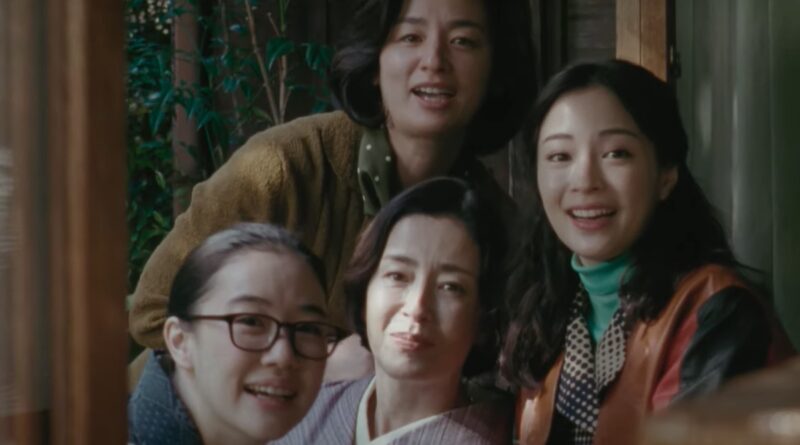‘Asura’ series review: Hirokazu Kore-eda returns with another messy family drama
[ad_1]

A still from ‘Asura’.
| Photo Credit: Netflix Asia/YouTube
If one were to parse through the work of Japanese filmmaker Hirokazu Kore-eda, it would be akin to sneaking into various family albums. Drawn to families that are less than perfect, he seems to have mastered a way of telling uncomfortable truths in a uniquely gentle manner. In his latest Netflix show, Asura, Kore-eda balances this trademark patient storytelling, with ambitious and melodramatic turns.

In the winter of 1979, Takiko (Yu Aoi) discovers her father carrying out an affair and having a son with a younger woman. She rounds up her three sisters to deal with it. Her revelation sets off a chain of reactions, with each sister having a different opinion. However, they all seem to agree with their mother’s naivete and attempt to resolve it without her knowledge. Later, an anonymous letter in the newspaper details the shameful secret, and the sisters suspect each other of betraying the family. Though vague with its message, the letter pointedly asks “Is it really happiness, for women like us to live without making waves?” Kore-eda moves the show forward, by sketching out the lives of the four sisters in response to the question.
Adapted from Kuniko Mukōda’s novel of the same, which has cemented itself as a drama staple in the Japanese tele-scape with a 1979 NHK drama, and a 2003 film preceding Kore-eda’s iteration, Asura spans several months, across seven episodes. The news of their father’s infidelity creeps into the sisters’ nightmares, looms over the family dining table, and punctuates their romantic relationships. Kore-eda is slow but steady in stacking up familial dynamics that build the towering women. A lonely widow, eldest sister Tsunako (Rie Miyazawa), is intrigued about her father but holds herself back due to her own dalliances as she pursues an affair with her boss’ husband. Housewife Makiko (Machiko Ono) is all too eager to turn away from reality but soon begins to suspect her own workaholic husband of seeing other women. While Takiko ups her guard against the advances shown towards her, youngest sister Sakiko (Suzu Hirose) resolves to ignore her amateur boxer boyfriend’s incidents of infidelity.
Asura (Japanese)
Director: Hirokazu Kore-eda
Cast: Rie Miyazawa, Machiko Ono, Yu Aoi, Suzu Hirose, and others
Episodes: 7
Runtime: 50 minutes to 1 hour
Storyline: The personal lives of four sisters in 1979 Japan spiral out of control as they discover their father having an affair with a younger woman.
The subject matter of the text gives Kore-eda a chance to venture beyond his comfort zone of subtle insinuations, and gentle narratives. He takes the opportunity to veer the drama of the script away from the father, as it trickles down into the lives of the four daughters. This provides him with a larger canvas on which to examine a gendered response to infidelity. Their reactions are, at times in tandem with and sometimes rebelling against, societal norms. Kore-eda also plays to his strengths in carefully dissecting these characters to the core, to reveal them as daughters who were shaped by their parents. In his hands, each episode is bursting at its seam with a richness of emotional drama, but his skill is best displayed in balancing this out.
ALSO READ:‘Monster’ movie review: A truth in three acts in Hirokazu Kore-eda’s moral drama
In Asura, a primarily character-driven drama, the protagonists carry the heft of the script’s pathos. Helmed by four women, the show finds its best moments to also be the more intimate ones shared between the four sisters. The show comes crackling alive when the four sisters gather around the dinner table to reminisce about their childhood food or devolve into playful banter even as they clean up after their father. Rie Miyazawa, Machiko Ono, Yu Aoi, and Suzu Hirose demonstrate an ability to easily dissolve into puddles of laughter while holding on tight to their respective storylines. There is yet to emerge a weak performance under the direction of Kore-eda.
Asura is cheekier, messier, and bolder than Kore-eda’s previous projects, and at times he succumbs to the impulse to explain away certain actions as products of a certain time. It eventually leads the script towards a feeble finale. Nonetheless, the Takezawa sisters are a worthy addition to the Kore-eda family album.
Asura is now available for streaming on Netflix
Published – January 11, 2025 05:50 pm IST
[ad_2]
Source link
